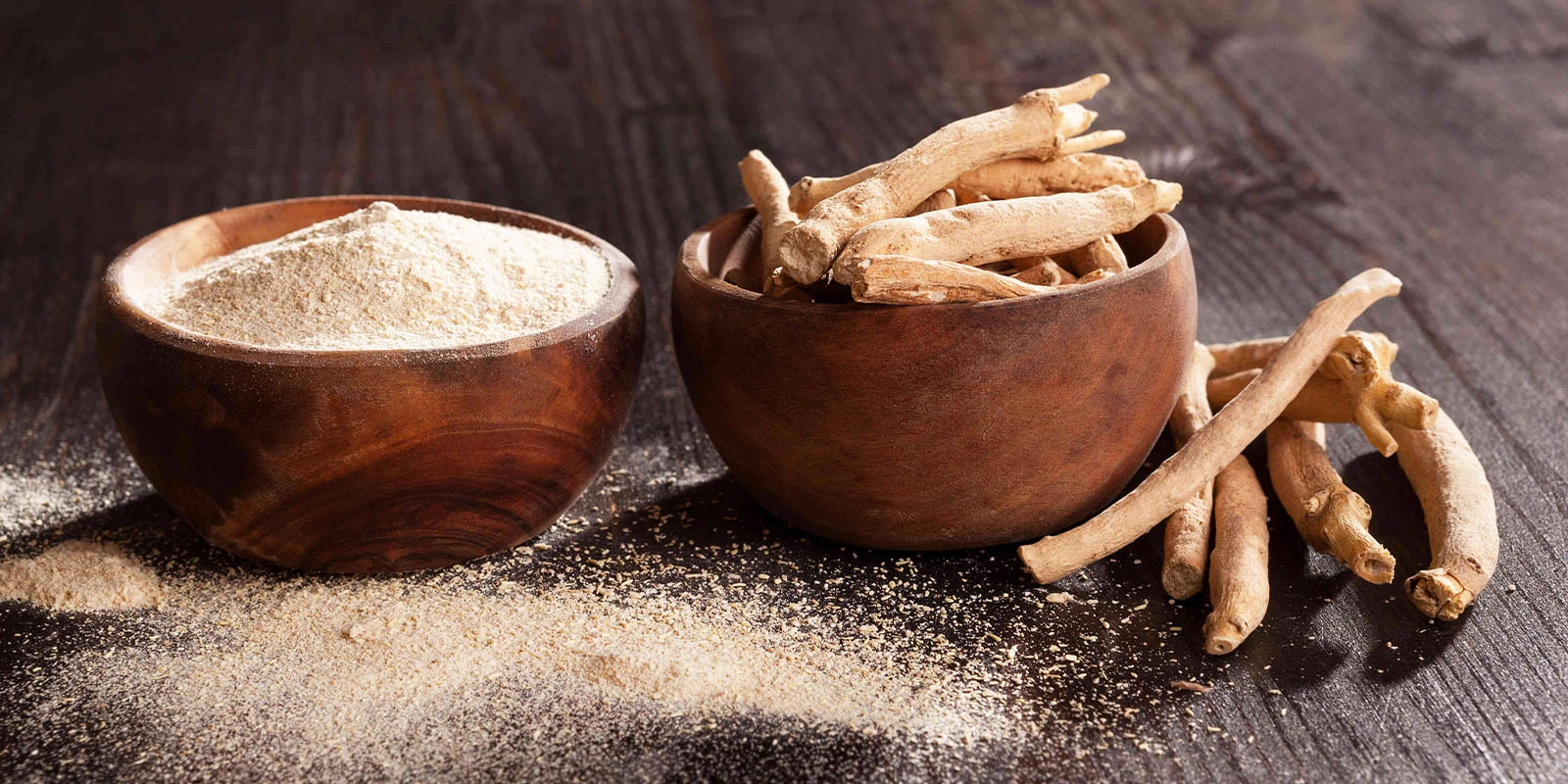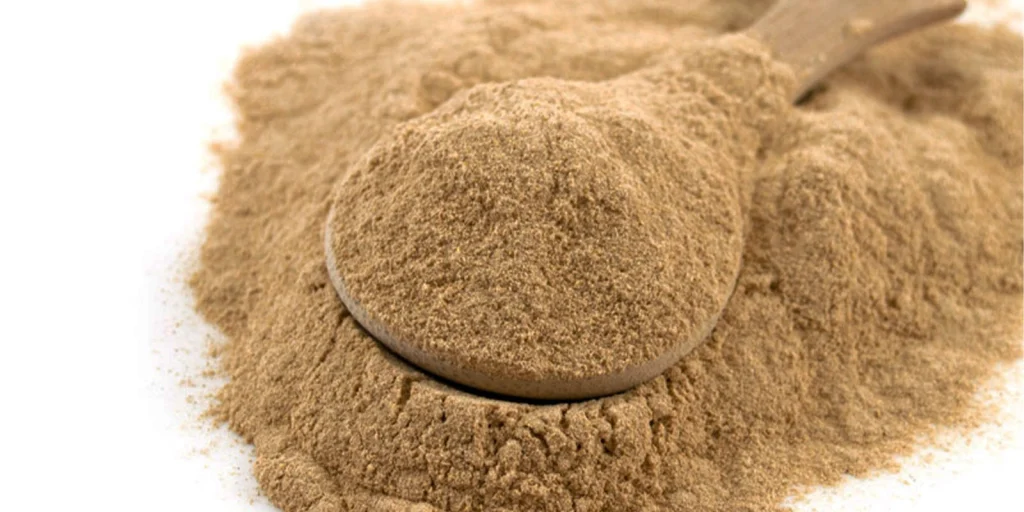


Ashwagandha is an ancient medicinal herb, used to help the body manage stress, Improve physical performance, and promote well-being.
Ashwagandha is a small shrub native to India and some parts of Africa. There are 6 ways in which ashwagandha enhances exercise recovery that we will explain to you.
In this article at RambodFit, we are going to discuss how and why ashwagandha enhances exercise recovery. It has gained attention in the fitness industry, especially for its benefits in exercise recovery.
Table of Contents

Exercise recovery is an important part of every sport because it helps improve muscle repair and growth, reduce muscle damage, and restore energy.
Not getting recovered properly can lead to muscle soreness, decreased performance, and injury. Ashwagandha is being explored for recovery and performance enhancer.
Research suggests that Ashwagandha enhances exercise recovery through various mechanisms, including reducing inflammation, lowering cortisol levels, Improving muscle strength, and enhancing sleep quality.
Exercising at an intense rate, especially resistance training can lead to muscle microtrauma, which can result in inflammation. Although some level of inflammation is essential for muscle growth, too much inflammation can delay recovery and cause prolonged muscle soreness.
To find out If ashwagandha enhances exercise recovery we should dig deeper. A study investigated the anti-inflammatory of Ashwagandha and its effects on muscle recovery. The research concluded that Ashwagandha could speed up recovery by mitigating inflammation and supporting muscle repair.
Also, Ashwagandha contains a compound called withanolides, which has potent anti-inflammatory properties. These compounds may inhibit pro-inflammatory markers like (TNF-a) and (IL-6), which are increased during and after intense exercise. By reducing these markers, Ashwagandha enhances exercise recovery.
Cortisol or stress hormone, plays an important role in the body’s response to physical and mental stress. Although cortisol is essential for various body functions elevated cortisol levels can damage muscle recovery and hinder muscle growth.
Several studies revealed the result that participants who were supplemented with ashwagandha experienced a significant reduction in serum cortisol levels. This cortisol-lowering effect is quite beneficial for athletes during intense exercise and can promote a more anabolic(muscle-building) environment and promote recovery and performance.
Ashwagandha has also been studied for its potential to improve muscle strength and power. Strength improvements can contribute to athletes training harder and recovering faster by managing muscle fatigue.
In a well-cited study, researchers explored the effects of Ashwagandha on muscle strength and healthy adults experiencing resistance training. Participants who took Ashwagandha experienced a greater increase in muscle strength compared to the placebo group. Also, the Ashwagandha group experienced less muscle soreness.
Ashwagandha’s potential to reduce fatigue and improve endurance is linked to its adaptogenic properties. By reducing the concept of physical stress, athletes may recover efficiently and maintain overall performance.
A clinical trial published in “The Journal of Ayurveda and Integrative Medicine” investigated the impact of Ashwagandha on cardiorespiratory endurance in healthy adults. Those who took Ashwagandha experienced improved VO2 max( a measure of aerobic capacity). Improved VO2 max can result in better endurance, allowing athletes to perform at higher intensity for longer periods.
During sleep body repairs damaged tissues, replenishes energy stores, and releases growth hormones, which are essential for muscle repair and recovery. Improved sleep can enhance recovery by giving the body more time to recover. Also, better sleep can improve cognitive function and mental clarity which are important for an athlete’s overall performance.
A study published in the “Journal of Ethnopharmacology” found that participants who were supplemented with ashwagandha experienced better sleep quality and increased total sleep time compared to the placebo group.
Besides the idea that Ashwagandha enhances exercise recovery, It also can support mental recovery. Exercise places stress not only on the body but also on the mind. Ashwagandha helps manage stress by balancing the hypothalamic-pituitary-adrenal (HPA) axis, which regulates the body’s stress response.
While studies have shown promise that Ashwagandha enhances exercise recovery, it is important to consider the proper dosage and safety. It is suggested that dosages ranging from 300 mg to 600 mg is ok! However, starting with a lower dosage and gradually increasing the dosage based on individual response is recommended.
Individuals with autoimmune conditions, thyroid disorders, or those taking medication should consult an expert and healthcare provider before consuming Ashwagandha.
The science behind the concept of Ashwagandha enhances exercise recovery is compelling. For athletes looking for a natural and evidence-based way to recover faster and train with more intensity, Ashwagandha may be the supplement they are looking for.
This science-based article utilizes evidence from famous scientific resources such as PubMed. It provides creditable information about how Ashwagandha enhances exercise recovery and can benefit those seeking to support their recovery and performance goals.
Ashwagandha can enhance overall energy levels by increasing ATP(energy) production. This means you can recover faster and feel fresher after intense exercise sessions. So according to this information, Ashwagandha enhances exercise recovery.
Yes, Ashwagandha can help improve digestion and nutrient absorption. In that case, we can make sure that the body can utilize essential nutrients like proteins and amino acids crucial for muscle repair. This can lead to faster recovery and proper muscle growth.